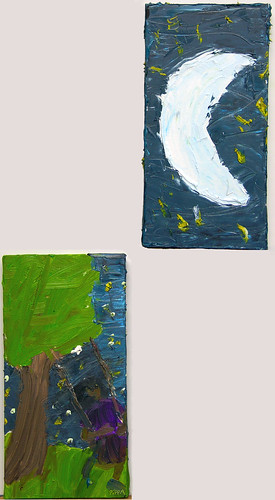Bill Cavanaugh begins a talk about theology and empire by citing Michael Novak’s observation that democratic capitalism has constructed for religion an empty shrine — not out of hostility, he says, but of reverence. The difficulty is that the empty shrine ends up excluding the God of the Decalogue, and that the emptiness and openness that lie at the heart of empire lend themselves to expansionism and imperialism.
In the U.S. liberalism has been wed with corporate and state imperialism.
The reluctant empire: in order for the U.S. to have an empire, it must constantly deny that it has one. Since the democratic ethos that the U.S. sponsors lies at odds with the actual practice of dominating the world with military and economic power, we need to demur from the appearance that we might be willing actually to exercise that power.
And our modesty and reluctance confirm our worthiness to exercise dominant power.
The policy of pursuing “openness” serves the exploitative ends of developed capitalism: the U.S. needs “open” foreign markets for the export of our surplus; and now, we need cheap industrial goods bought on loans from foreign banks.
The openness of our system, the emptiness of the shrine ensure freedom and happiness for everyone: we’re the “universal nation.” American values are a sort of universal solvent for the flow of freedom and wealth — if we force others to accept our way. Because we are the truly universal nation, we’re unlike any other — the same rules don’t apply to us. In the emptiness of the shrine, the absence of an absolute end, the American way of life itself becomes the absolute end of the system.
American idealism and American selfishness both derive from the idea of limitlesss expansion. Bill combines Voltaire’s “I may not agree with what you say, but will defend to the death your right to say it” with the cinematic George Patton’s “Nobody ever won a war by dying for his country; you win a war by making the other poor dumb bastard die for his country.”
At the very moment when peace was supposed to arrive, as liberal democracy and free-market capitalism triumphed over communism, our very “openness” turns out to put us at ever-greater risk. National defense is supplanted by national security.
So, empire is understood as an attempt to see and act as God sees and acts, without limits; it stands at the point of universality, overcoming all particularities. The national God of the U.S. replaces
Exodus 19:5-6 — God instructs Israel that God encompasses all the earth, but makes a covenant with a particular people. The particularity of Israel won’t be effaced, because God has made a covenant with this people. The problem with transferring this covenantal relation from ancient Israel to the modern U.S. is (among other things) that the correct complement of Israel is not the U.S.A., but the church.
Exodus 20:2-6 — If the empty shrine has been filled with a national God, then we’re obviously breaking the first commandment. But “openness” doesn’t make a functional candidate for “idolatry.” But the invisibility of the national god shields it from critique. The empty shrine becomes the new Holy of Holies.
Exodus 20:13 — The state determines for itself whom it may kill — you can profess faith in any god you want, so long as you’re willing to kill for the American way of life. You may not kill, because life and death belong to God.
++++++++++++
Those were my notes. I may have gotten some things wrong, because Bill was talking faster than I can type — so if anything’s amiss, blame my stenographic skills, not Cavanaugh’s thinking.
